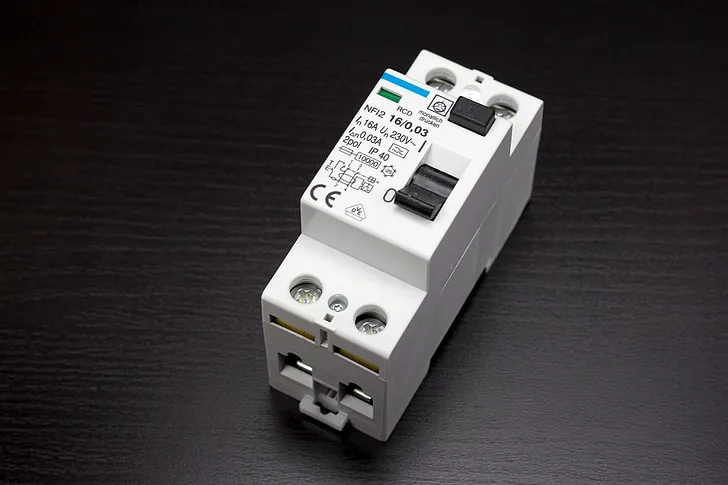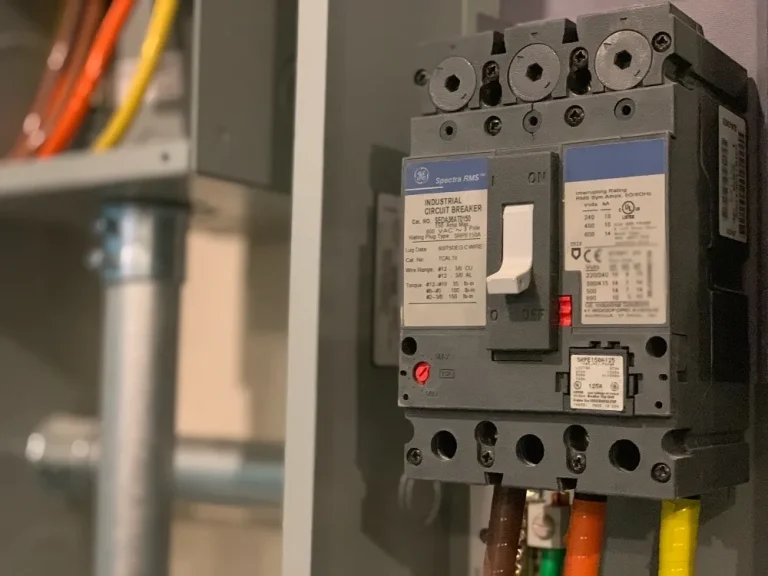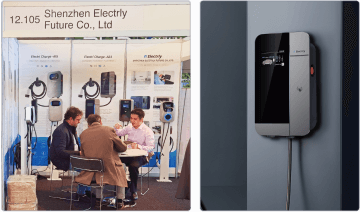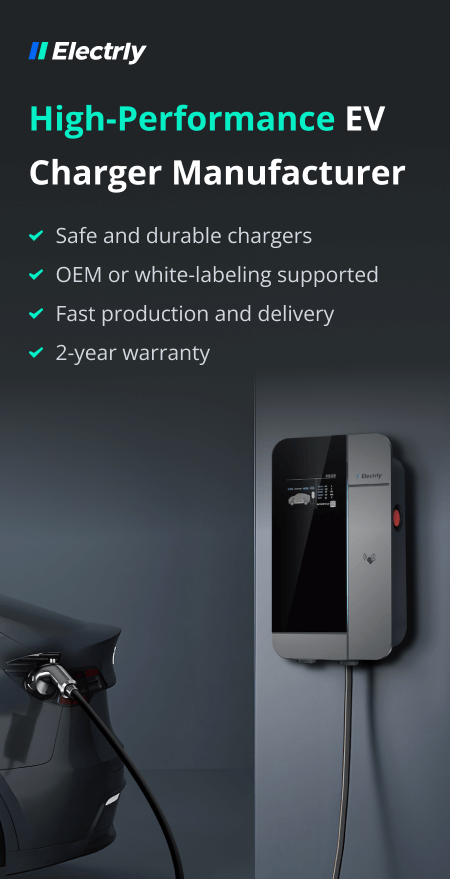While getting into the EV club might be exciting, considering every option on the ground before making your decision can be very rewarding.
Introduction
If you’re thinking about installing a solar panel system in your home or business, chances are you’ve heard of solar panel circuit breakers – but do you really need one?
These little gadgets may not be the most glamorous part of your solar panel system, but trust us – they’re crucial for keeping everything running smoothly (and safely).
By carefully selecting the correct solar breaker for your system, you’ll be safeguarding your home’s power supply and maximizing its efficiency. This ultimate guide will give you all the info you need to understand how these little lifesavers work and how to choose the best one for your setup. So, if you’re ready, let’s get started.
I. What is a solar panel circuit breaker?

source : hippopx
A solar panel circuit breaker is like a traffic cop for your solar panel system. It sits between your solar panels and your home’s electrical system, and its job is to regulate the flow of electricity between the two. It protects your home from any electrical issues, such as power surges or short circuits. Think of it like a bouncer at a fancy event – it only lets the good stuff in and keeps the bad stuff out.
But solar breakers aren’t just there to protect your home from electrical issues – they also play a crucial role in the overall performance of your solar panel system. You need to carefully choose a suitable circuit breaker for your system to ensure that your panels operate at their maximum potential and that your home’s solar panels are effective and well-protected.
II. What Type of Circuit Breaker Is Used for Solar Panels?
When choosing a circuit breaker for your solar panel system, there are a few different options to consider. The type of circuit breaker you choose will depend on your solar panel system size, the type of panels you are using, and the specific needs of your home’s electrical system. Let’s explore some of the most popular choices on the market for solar panels:
Standard circuit breakers are the most basic type and are designed to protect against electrical overloads and short circuits. They are available in a range of amp capacities and can be used in various locations within a solar panel system.
GFCI (Ground Fault Circuit Interrupter) circuit breakers are specially designed to protect against ground faults, which occur when electricity flows to the ground instead of through the intended circuit. GFCIs are often used in outdoor solar panel systems or areas with a higher risk of electrical shocks.
AFCI (Arc Fault Circuit Interrupter) circuit breakers are designed to protect against arc faults, which are electrical discharges that can cause fires. AFCIs are typically used in residential solar panel systems to protect against electrical fires.
Overall, the type of solar breaker you choose for your solar panel system will depend on your specific needs and the size and complexity of your system.
III. Different Solar System Circuit Breaker Sizes
Some caution is necessary when it comes to solar panel parallel connections. Hence, a 30-amp fuse per panel is often advised. This will help to protect your solar panel system from electrical overloads and short circuits. Smaller capacity panels below 50 watts and thinner wires (12-gauge), may require a 20-amp fuse, for a perfect solar setup. Still, it’s essential to carefully consider the size of your fuse to ensure that it is adequately sized for your system and meets all of your electrical requirements.
Fuse and inverse time circuit breakers are also available in various sizes to suit different solar panel systems. The complexity and the size of your solar panel system will determine the size you employ. But it generally ranges from 15 to 6000Amp.
Overall, it’s important to carefully consider the size of your solar breaker to ensure that it is properly sized for your system and meets all of your electrical requirements. A professional electrician can help you determine the right size for your needs.
IV. Does the Solar Panel Need a Circuit Breaker?
Circuit breakers stand guard between the Direct Current (DC) of your solar panels and the Alternating Current (AC) of your home’s electrical system, protecting both from any electrical disasters. Plus, they’re super important for installation and maintenance – without them, you might as well just be throwing the efficiency of your solar panel system down the drain.
Even if your AC unit completely craps out, circuit breakers will keep trucking, ensuring that your panels keep chugging along. Additionally, they rarely experience failure and are easily maintained with high dependability.
So, what’s the fuss about circuit breaker’s importance for your solar panels? Simply put, they help ensure that your panels can deliver top-quality performance for as long as possible. By choosing the right circuit breaker for your system and properly maintaining it, you can keep your panels running smoothly and efficiently for years to come.
V. Applications of Solar Circuit Breaker

source : unsplash
Solar circuit breakers are used in various applications to protect against electrical issues and optimize the performance of solar panel systems. For most solar panel owners who use direct current (DC) for all sorts of things around their homes, keeping things running smoothly is often essential. Solar breakers are often the best bet in such situations. These handy devices can help you develop all sorts of solutions and even set up separate fuse boxes with many circuit breakers for both AC and DC. Plus, they can control the direction of current flow – because, let’s be real, accidentally (or intentionally) changing that direction could lead to safety issues and damage to your solar cells.
Also, solar circuit breakers are often used in residential solar panel systems to protect against electrical issues and optimize the panels’ performance. But DC circuit breakers aren’t just for protecting your solar panels – they can also help power some nifty things, like LED lamps. GFCI (Ground Fault Circuit Interrupter) circuit breakers, in conjunction with outdoor solar panel systems, provide additional protection against ground faults and electrical shocks. They may also be used in combination with other components, such as inverters and charge controllers, to ensure that the system operates safely and efficiently.
VI. How Do I Choose A Solar Circuit Breaker?
Choosing a suitable solar circuit breaker for your system can be tricky, but it’s an important step in ensuring that your solar panel system is safe and efficient. You may need to consider the following in making a suitable choice.
- What size breaker do I need for a 200-watt solar panel? A 200-watt solar panel typically requires a 30-amp circuit breaker. However, it’s important to note that the amp size may vary depending on the specific requirements of your system and the number of panels you have connected in parallel. It is important to check with the solar panel’s manual or consult with a professional electrician to make sure you get the right ampere circuit breaker.
- What size breaker do I need for a 100-watt solar panel? A 100-watt solar panel typically requires a 15-amp circuit breaker. However, just like a 200-watt solar panel, it’s important to note that the amp size may vary depending on the specific requirements of your system and the number of connected panels you have connected in parallel. Again, it is important to check with the solar panel’s manual or consult a professional electrician to ensure you get the right ampere circuit breaker.
Besides the size, you should also consider the location of the installation, the voltage requirement, and whether your system requires protection against ground faults or arc faults, which also play a role in selecting the correct solar circuit breaker.
VII. How to Calculate Circuit Breakers in Solar PV System
There are a few key factors to consider when determining the size of the circuit breakers for a solar PV system.
To calculate the size of the circuit breaker, you will need to consider the system’s total wattage, the type and size of wire used, the distance between the panels and the inverter, and any specific requirements for the inverter. A general rule of thumb is to select a circuit breaker with a rating of 1.25 to 1.5 times the system’s total wattage.
For instance, if the total wattage of the solar panel system is 20AH, it means the maximum current is 30 amps. Hence, you’ll multiply this current by a factor of 1.25 to get a 25 A for the capacity of the circuit breaker required.
Conclusion
In conclusion, choosing the right solar breaker for your solar PV system is essential for ensuring the safety and proper functioning of the system. We’ve addressed various types of circuit breakers to choose from, such as standard, GFCI, and AFCI, each with specific capabilities and uses. However, when selecting a circuit breaker for a solar panel system, it’s important to consider the system’s total wattage, the type and size of wire used, the distance between the panels and the inverter, and any specific requirements for the inverter. Understanding the key aspects of circuit breakers and their role in a solar panel system helps you make an informed decision when selecting and installing a circuit breaker.


